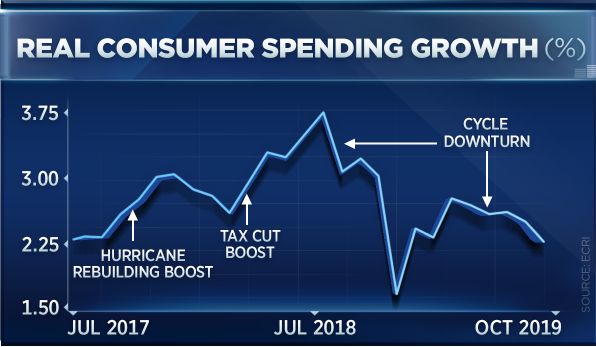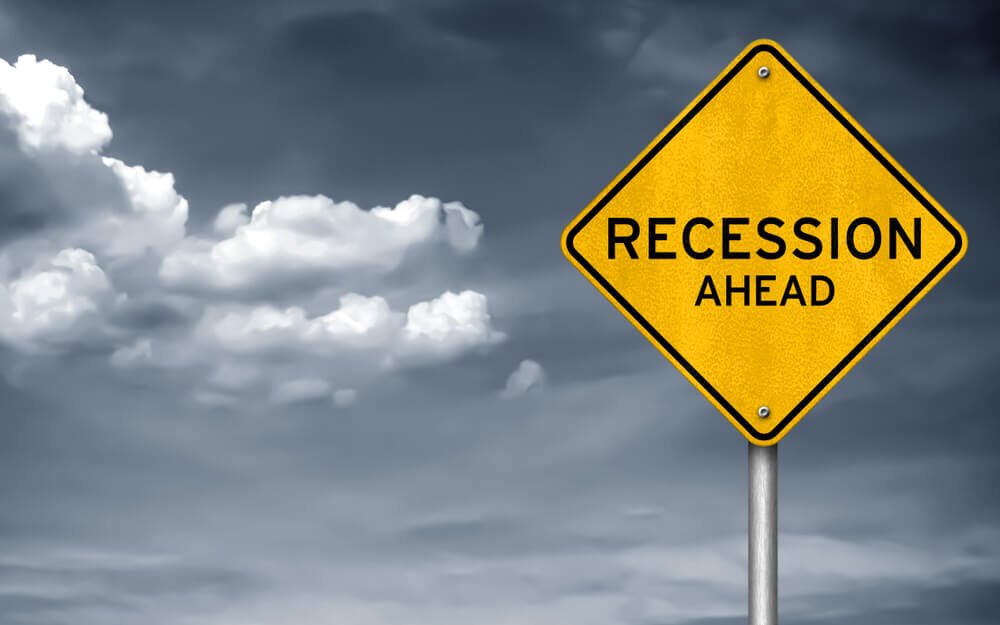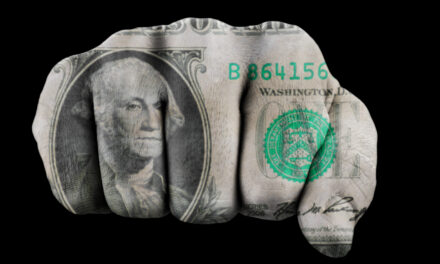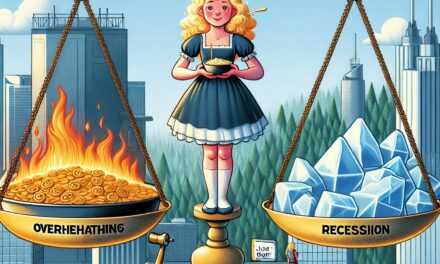Real consumer spending, also known as personal consumption expenditures, is declining, and that’s got one analyst raising the recession “yellow flag” alert.
While certain sectors like manufacturing and job growth have shown signs of decline (or even recession in U.S. manufacturing’s case), many analysts have argued that consumers will keep the economy chugging along in its 11-year expansion period.
But that argument is losing steam, according to Lakshman Achuthan, co-founder of the Economic Cycle Research Institute.
“We’ve been tracking the overall economy slowing, jobs growth slowing, manufacturing slowing, and the hope has been that the consumer’s just going to bail everybody out,” Achuthan said during a Wednesday interview on CNBC’s “Trading Nation.”
But after spending growth in 2016 and 2017, which Achuthan called a “cyclical upturn,” it is back into a sustained decline.

“Here (in the chart above) we see that the … consumer spending slowdown is very much in line with the jobs growth slowdown and the overall slowdown,” Achuthan said.
He noted that consumer spending growth is around a two and a half-year low if you leave out the nosedive it took at the end of 2018. Downturns are also happening in soft data like consumer sentiment, while Achuthan points to weak appliance sales that were as low as they are now in “the lead-up to past recessions.”
All of that adds up to Achuthan’s warning that the consumer is not going to be what saves the U.S. economy — even though a recession isn’t presently knocking at the door.
“Let me boil it down: A recession is not imminent. It’s not right here. But it is certainly on the table,” he said. “You can’t take it off the table. There’s a lot of data kind of edging in the wrong direction. And I’m just concerned about this super optimistic story that the consumer is going to bail us out, even though manufacturing is really decelerating.
“See, when you’re in a growth rate cycle downturn and it’s decelerating, deteriorating, that’s when you have a yellow flag on recession risk. You have to take it seriously.”
Achuthan doesn’t think another interest rate cut from the Federal Reserve is going to fix much, either.
“How much of this kind of egging consumers on with low rates can you do? It’s not like we haven’t been doing it,” he said. “We’ve been pulling a lot of demand forward. Maybe we can do it one more time, but rates are already pretty darn low. I must say that the bond market certainly seems to be — while it’s doing a lot of other things — pricing in some slowing in growth ahead.”




